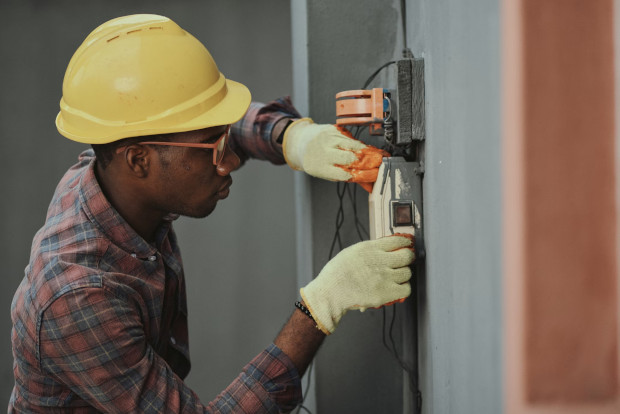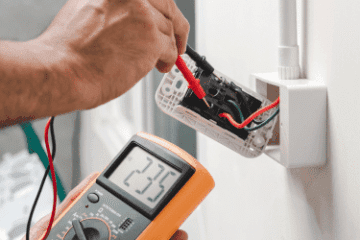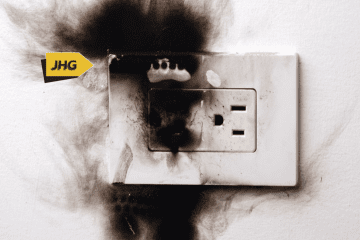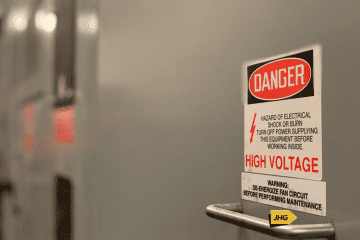In a rapidly evolving world where electricity powers nearly every aspect of our homes, ensuring the safety, efficiency, and reliability of your residential electrical system is non-negotiable. Yet, many homeowners in Nigeria overlook one of the most essential steps in protecting their families and properties: regular home electrical inspections.
According to global fire safety reports, electrical malfunctions are one of the leading causes of residential fires. Faulty wiring, outdated panels, and overloaded circuits can quickly become life-threatening. The truth is—waiting for a sign that something is wrong is often too late. Prevention, in the form of timely inspections, is your most reliable shield.
At Just HardRich Global Resources Limited, we specialize in comprehensive electrical power and control engineering solutions for residential, industrial, and commercial settings. We understand the critical importance of home safety, which is why we are passionate about helping homeowners make informed decisions that can prevent devastating losses. This blog post explores how often you should schedule electrical inspections, warning signs to watch for, and how innovative tools are shaping smarter, safer homes.
What Is a Residential Electrical Inspection?
A residential electrical inspection is a thorough evaluation of your home’s entire electrical infrastructure. This isn’t a surface-level glance at your fuse box—it’s an in-depth assessment conducted by licensed professionals who understand the nuances of electrical safety standards, load distribution, and energy compliance.
At Just HardRich Global Resources Limited, our inspections cover:
- Main electrical panel condition and capacity
- Circuit breaker operations and trip thresholds
- Fuse health and configuration
- Grounding and earthing systems
- Wiring integrity and type (e.g., copper, aluminum, PVC)
- Socket and outlet functionality
- Switches, dimmers, and lighting fixtures
- Electrical connections for appliances and high-load devices
- Voltage drop measurements and energy flow diagnostics
These inspections are designed not just to identify faults, but to optimize the performance of your system and ensure that your electrical infrastructure can meet your household’s evolving energy needs safely and efficiently.
When Should You Schedule a Home Electrical Inspection?
The general recommendation is to have your home inspected every 3 to 5 years, but various circumstances may require more frequent checks. Let’s explore the factors that determine inspection frequency.
1. Age of the Property
Older homes, especially those built over 25 years ago, often have outdated wiring systems that may no longer comply with modern electrical standards. For example, aluminum wiring—common in older Nigerian buildings—poses a greater fire risk compared to copper due to oxidation and loose connections over time.
Why this matters: Most older properties were designed with lower power demand in mind. Today, we use more devices than ever—everything from air conditioners to solar inverters and smart home systems—placing increased stress on outdated electrical infrastructure.
Our tip: If your home is over two decades old and hasn’t been inspected in the last three years, schedule an inspection immediately. Annual inspections may be necessary depending on the load and conditions of your system.
2. Changes in Energy Consumption
Have you recently installed a heavy-duty generator, inverter, or solar power system? Maybe you’ve upgraded your appliances or added more electronics to your household? These changes can significantly affect your system’s load capacity and distribution.
Real-world scenario: A Lagos homeowner who recently installed a 5KVA inverter without re-evaluating his home’s electrical configuration suffered multiple appliance burnouts due to incompatible load distribution. An inspection could have prevented this loss.
At Just HardRich Global Resources Limited, we use cutting-edge load assessment tools and infrared thermography to detect hotspots, current leaks, and load imbalances—allowing you to use your upgraded systems with peace of mind.
Signs You Need an Immediate Electrical Inspection
Even with a routine inspection schedule, there are red flags that demand immediate attention. If you notice any of the following issues, call a certified electrician immediately.
1. Flickering or Dimming Lights
This is often a symptom of fluctuating voltage or an overloaded circuit. It may indicate loose wiring or a failing circuit breaker.
2. Burning Smell or Scorch Marks
A persistent burning smell, especially from outlets or switches, may signal overheating wires or insulation breakdown. Scorch marks are a serious fire risk and should not be ignored.
3. Electric Shocks
Even a mild shock when touching an appliance or switch could point to grounding issues or wiring faults. This is a major hazard that could result in serious injury or death.
4. Sparks or Smoke
If you see sparks, smoke, or hear popping sounds from outlets or panels, shut off the power supply and contact a professional immediately.
Post-Renovation and New Installations: Why You Should Always Inspect
Renovations often involve rewiring, adding outlets, or changing appliance configurations. Even if the job appears minor, unverified installations can void insurance and pose serious risks.
Example: A home extension project in Abuja was completed without an inspection. A poorly grounded AC unit caused a short circuit, leading to a fire that destroyed half of the property.
At Just HardRich Global Resources Limited, our post-renovation inspection service ensures that every newly installed fixture or wire adheres to the latest Nigerian Electrical Regulations and global best practices.
Moving into a New Home? Don’t Skip the Inspection
Purchasing a new home is an exciting milestone, but hidden electrical problems can turn your dream into a costly nightmare. The previous owner’s electrician may not have followed proper standards, and without an inspection, you won’t know until something goes wrong.
What we do: Our pre-occupancy inspections for new homeowners include system diagnostics, earthing verification, voltage regulation checks, and safety audits. It’s the smartest way to move in with confidence.
Energy Use Changes: Time for a Reassessment
Whether you’ve added a smart security system, installed solar panels, or expanded your HVAC usage, these shifts in energy demands mean your system must be evaluated to ensure safe integration.
Trends to consider:
- Smart home systems (automated lighting, sensors)
- Electric vehicles (charging stations)
- Off-grid/solar hybrid installations
At Just HardRich Global Resources Limited, we integrate smart meters, remote monitoring systems, and surge protection devices to give your home the adaptability and intelligence it needs to remain secure and efficient.
Innovative Tools for Modern Electrical Inspections
Modern inspections go beyond screwdrivers and test lamps. At Just HardRich, we use advanced diagnostic tools such as:
- Thermal Imaging Cameras: Detect overheating in wiring and equipment
- Digital Multimeters and Clamp Meters: Measure live current, resistance, and voltage accurately
- Earth Resistance Testers: Assess grounding effectiveness, especially important in areas prone to lightning
- Insulation Testers: Ensure wires are not degraded or leaking current
These tools enable us to diagnose problems quickly, minimize downtime, and deliver high-value solutions without guesswork.
Final Thoughts: Why Electrical Inspections Are Non-Negotiable
Home electrical inspections are an investment, not a cost. Whether it’s preventing fire hazards, preserving the lifespan of appliances, or safeguarding your family, the value of a professionally executed inspection cannot be overstated.
At Just HardRich Global Resources Limited, we’re not just electricians—we’re partners in building safer, smarter, and stronger homes for Nigerians. We are the choicest Electrical Power and Control Engineering Company, trusted by individuals, estates, and corporations across the country.
If it’s been more than three years since your last inspection—or if you’re facing any signs of electrical instability—don’t delay. Let our experts conduct a detailed inspection and give you peace of mind.




